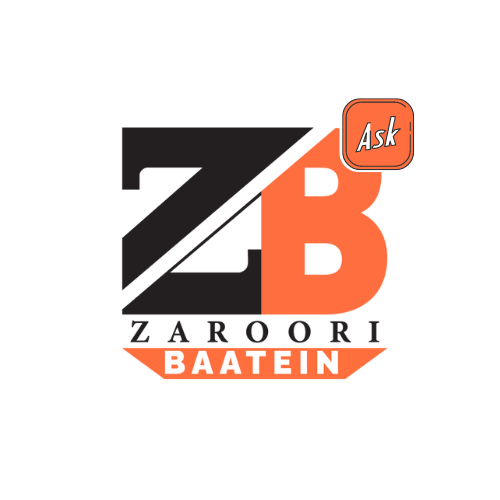Alternative Investment Funds (AIFs) are an increasingly popular vehicle for sophisticated investors looking to diversify beyond traditional equity and debt instruments. Regulated by the Securities and Exchange Board of India (SEBI), AIFs operate under the SEBI (Alternative Investment Funds) Regulations, 2012. Before launching an AIF in India, it is essential to understand the eligibility requirements and the documentation necessary for registration.
This article outlines the eligibility criteria and lists the key documents required to register an AIF with SEBI.
Understanding AIFs and Their Categories
Under SEBI regulations, AIFs are pooled investment vehicles that raise capital from investors to invest according to a defined investment policy. AIFs are broadly categorized into three types:
- Category I AIFs: These include venture capital funds, SME funds, social venture funds, infrastructure funds, and other funds that promote economic development. SEBI encourages these funds through various concessions.
- Category II AIFs: These are private equity funds, debt funds, and other funds that do not fall under Category I or III and do not undertake leverage other than for day-to-day operational requirements.
- Category III AIFs: These funds employ diverse or complex trading strategies and may use leverage, including through investment in listed or unlisted derivatives. Hedge funds fall under this category.
Each category has distinct characteristics, compliance requirements, and investment restrictions, which applicants must clearly define at the time of registration.
Eligibility Criteria for AIF Registration
To be eligible for AIF registration with SEBI, the applicant must satisfy several regulatory conditions:
1. Legal Structure
The AIF must be established or incorporated in India as one of the following:
- A trust governed by the Indian Trusts Act, 1882
- A limited liability partnership (LLP) under the LLP Act, 2008
- A company under the Companies Act, 2013
- A body corporate (if specifically permitted by SEBI)
2. Fit and Proper Person Criteria
The sponsor, manager, and key personnel must meet the “fit and proper person” criteria as specified under Schedule II of the SEBI (Intermediaries) Regulations, 2008. This includes requirements related to integrity, financial solvency, competence, and reputation.
3. Experience and Infrastructure
The manager and sponsor must have:
- Adequate experience in managing or advising on investments
- Appropriate infrastructure, including office space, systems, and personnel, to carry out fund operations effectively
4. Minimum Corpus and Investment Requirements
- The minimum corpus of an AIF scheme must be at least INR 20 crore.
- For Angel Funds (a sub-category under Category I), the minimum corpus is INR 5 crore.
- Each investor must contribute a minimum of INR 1 crore.
- For employees or directors of the AIF or manager, the minimum investment requirement is INR 25 lakh.
5. Capital Commitment from Sponsor/Manager
The sponsor or manager must have a continuing interest in the AIF, which must be:
- At least 2.5% of the corpus or INR 5 crore (whichever is lower)
- For Category III AIFs, the minimum commitment is higher due to the leverage involved
This interest cannot be through the waiver of management fees.
Documents Required for AIF Registration
SEBI mandates the submission of Form A along with the following supporting documents for AIF registration:
1. Constitutional Documents
- Trust deed (in case of a trust)
- Partnership deed (in case of LLP)
- Memorandum and Articles of Association (MoA & AoA) for companies
- Certificate of Incorporation
2. Sponsor and Manager Details
- Background and experience of sponsor and manager
- Details of directors or designated partners
- Identity and address proofs (PAN, Aadhaar, etc.)
- Shareholding pattern of sponsor and manager entities
3. Investment Strategy and Objectives
- Description of the fund’s investment objectives and strategy
- Target investor class
- Risk management policy
- Details of leverage, if applicable
4. Organizational Structure
- Diagram showing ownership and management structure
- Details of all associated entities and control relationships
5. Infrastructure and Operational Details
- Information on office premises, IT systems, staff, and governance practices
- Internal compliance mechanisms
- Appointment letters or agreements with service providers (custodians, auditors, fund administrators)
6. Financial Information
- Net worth certificate of the sponsor and manager (certified by a Chartered Accountant)
- Bank account details and any initial funds raised
7. Regulatory Declarations
- Declaration that the manager and sponsor meet the “fit and proper” criteria
- Undertakings related to compliance with SEBI regulations and guidelines
- Confirmation that the AIF will not be involved in activities outside the scope permitted under AIF regulations
8. Fee Payment
- Registration fee of INR 5,00,000 (for Category I, II, III AIFs)
- INR 1,00,000 for Angel Funds
Registration Process with SEBI
- Prepare Form A and compile the supporting documents.
- Submit the application to SEBI along with the prescribed fee.
- SEBI may seek clarifications or additional documents.
- Upon satisfaction, SEBI grants the certificate of registration under the relevant AIF category.
The process typically takes 6 to 12 weeks depending on the completeness of the application and SEBI’s queries.
Final Thoughts
Setting up an AIF in India involves a comprehensive evaluation of the legal, regulatory, and operational framework. It is advisable for applicants to engage legal and compliance professionals to ensure accuracy in documentation and to streamline the registration process. Meeting SEBI’s eligibility norms and maintaining full transparency in disclosures are crucial for a successful AIF registration.
If you are planning to register an AIF or need assistance with drafting fund documents, legal structuring, or compliance requirements, professional support can be invaluable.
